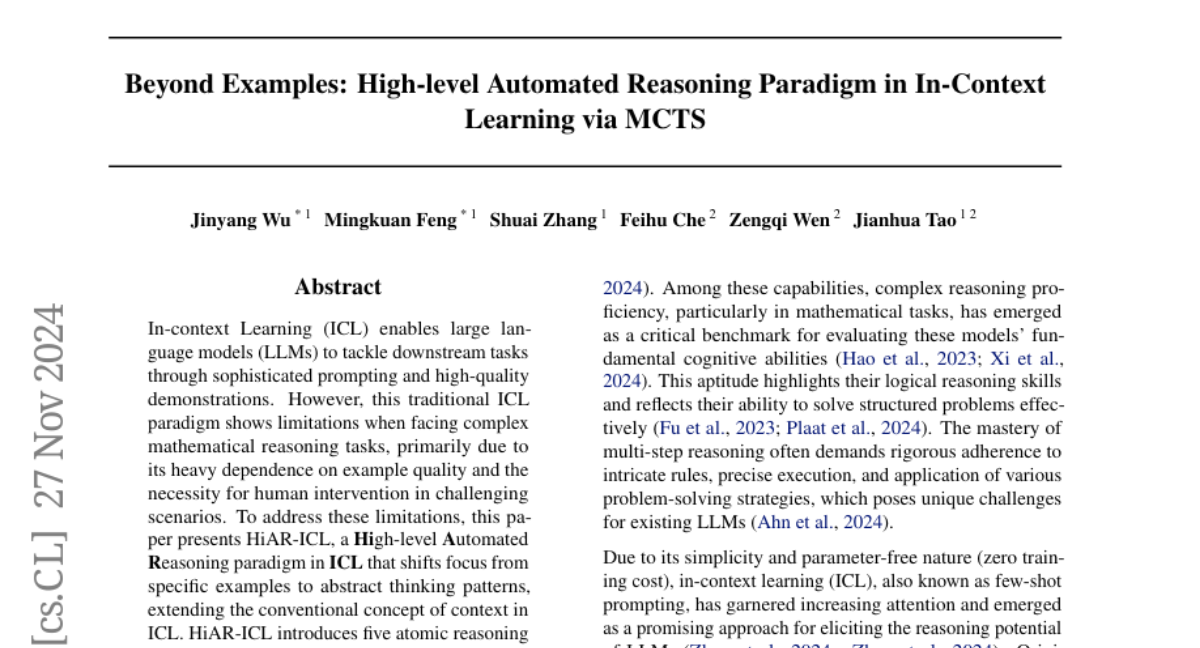Beyond Examples: High-level Automated Reasoning Paradigm in In-Context Learning via MCTS
Jinyang Wu, Mingkuan Feng, Shuai Zhang, Feihu Che, Zengqi Wen, Jianhua Tao
2024-12-02

Summary
This paper discusses HiAR-ICL, a new approach to improve how large language models (LLMs) perform complex reasoning tasks by focusing on abstract thinking rather than just examples.
What's the problem?
Large language models can struggle with difficult reasoning tasks, especially when they rely heavily on specific examples. This makes them less effective for complex problems because they often need human help and can be limited by the quality of the examples they are given.
What's the solution?
The authors introduce HiAR-ICL, which shifts the focus from using specific examples to understanding general reasoning patterns. They use a method called Monte Carlo Tree Search to explore different reasoning paths and create 'thought cards' that guide the model's thinking process. This allows the model to handle problems more effectively by matching them with appropriate reasoning strategies. The results show that HiAR-ICL significantly improves the accuracy of LLMs on mathematical benchmarks compared to previous models.
Why it matters?
This research is important because it enhances the ability of AI models to reason through complex problems without needing constant human input. By improving how LLMs learn and apply reasoning, HiAR-ICL can lead to better performance in various applications, from education to problem-solving in real-world scenarios.
Abstract
In-context Learning (ICL) enables large language models (LLMs) to tackle downstream tasks through sophisticated prompting and high-quality demonstrations. However, this traditional ICL paradigm shows limitations when facing complex mathematical reasoning tasks, primarily due to its heavy dependence on example quality and the necessity for human intervention in challenging scenarios. To address these limitations, this paper presents HiAR-ICL, a High-level Automated Reasoning paradigm in ICL that shifts focus from specific examples to abstract thinking patterns, extending the conventional concept of context in ICL. HiAR-ICL introduces five atomic reasoning actions as fundamental components for constructing chain-structured patterns. Using Monte Carlo Tree Search, we explore reasoning paths and construct thought cards to guide subsequent inference. We then develop a cognitive complexity framework that dynamically matches problems with appropriate thought cards. Experimental results demonstrate HiAR-ICL's effectiveness, achieving state-of-the-art accuracy (79.6%) on the MATH benchmark with Qwen2.5-7B-Instruct, surpassing GPT-4o (76.6%) and Claude 3.5 (71.1%).